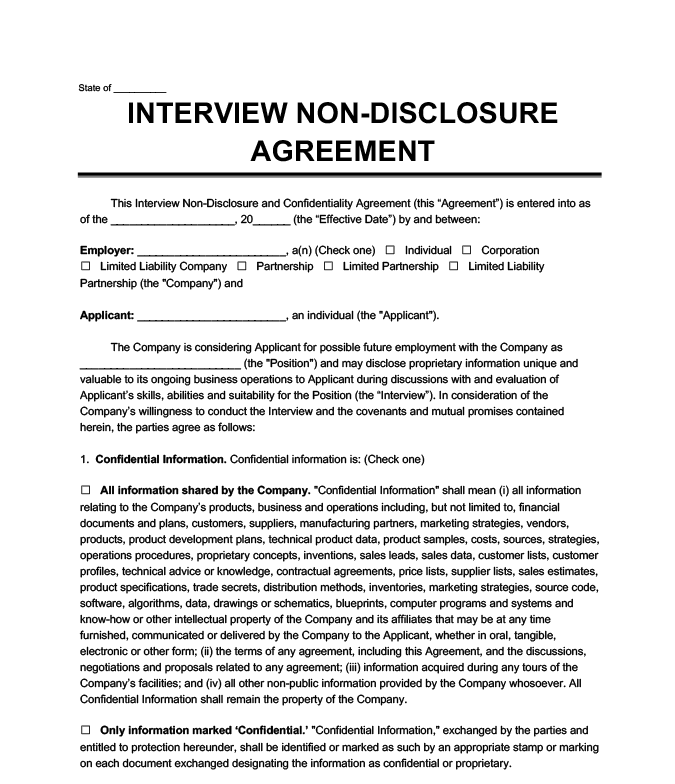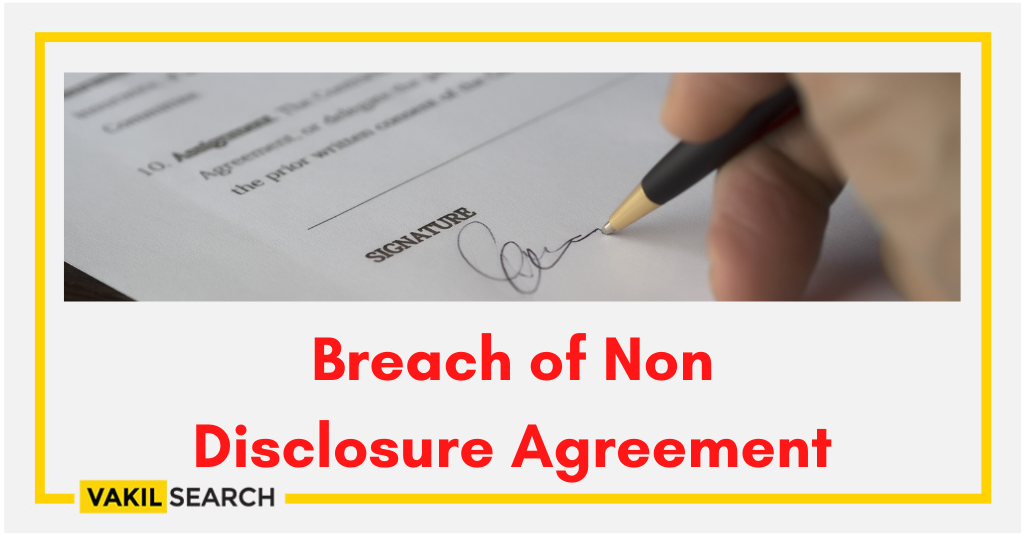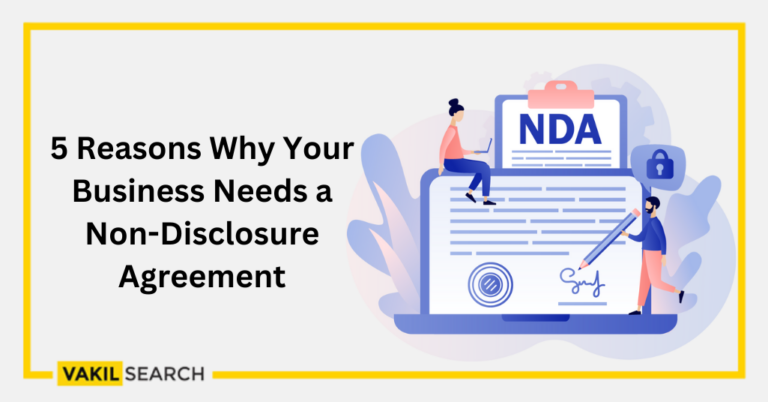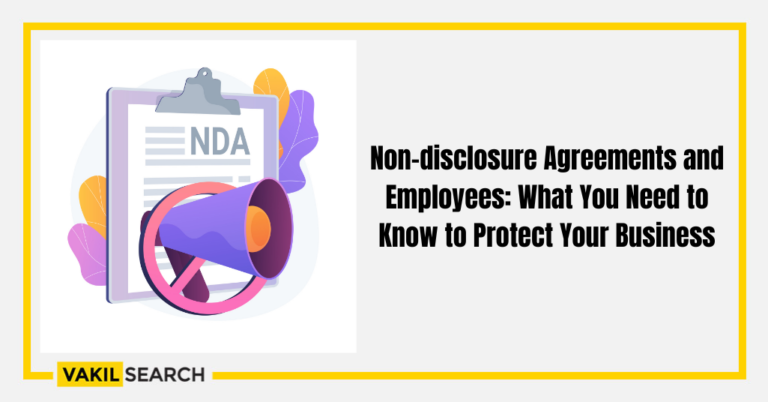In this article we shall take a look at what happens when one party breaches the terms of an NDA.
Non-Disclosure Agreement or NDA is a term that almost everyone in the corporate world is aware of even if they do not know what it means precisely. It is something that every entrepreneur keeps ready in their back pockets everytime they discuss their business idea or pitch with anyone.
A non-disclosure agreement, as the name suggests, is an agreement between two parties where one party discloses certain information to another party under certain terms and conditions outlined in the agreement and mutually consented to by both parties before the exchange of said information occurs. This blog details about Breach of Non Disclosure Agreement.
Several businesses consider this document beyond crucial and sacrosanct, especially when their organisation is heavily dependent on its intellectual property and technical expertise. And while the Non-disclosure agreement can give assurance to the disclosing party that the party receiving the information has no malafide intention of breaking the covenants of the agreement, there is no saying in the future what circumstances may lead to the breach of the agreement. In this article we shall discuss the measures a party can take when an NDA is breached. And the best way to understand this is with an illustration.
How Does An Breach of Non Disclosure Agreement Occur
There are many challenges that budding business owners and emerging entrepreneurs face. One such issue is the breach of a non disclosure agreement. There are many terms and conditions associated with the non-disclosure agreement and here we have detailed all the provisions under the same and what you should do in case it fails.
Kick-crazy is a private company which is engaged in the business of data recovery. It provides a wide range of data migration and data recovery solutions to its clients both in India and abroad. Sahil and Pooja earlier worked with Kick-crazy and have now gone independent and started their own business of providing services relating to data migration and data recovery solutions.

Can You Think of the Direct Implication of the Above Case for Kick-Crazy?
Well, now Sahil & Pooja’s company are directly competing with Kick-crazy. Kick-crazy claims that both Sahil & Pooja had access to its confidential data, information, trade secrets and knowhow & are using the same for securing their own business from Kick-crazy’s clients. In essence, it is a breach of the provisions of the non-disclosure agreement (“NDA”) which its employees had signed with Kick-crazy.
Let us find out what Kick-crazy can do in such a scenario, to enforce this NDA.
Measures Upon The Breach of Non Disclosure Agreement
The first step shall be to quickly review a few of the below mentioned standard clauses in the NDA.
How is Proprietary Information Defined in the NDA?
Most of the time, proprietary information includes all the information that is linked to the business of the company, or its affiliates, or its employees, its clients or its business associates. For instance, information about contracts and lists of customers, research projects, unpublished financial information.
In essence, all the information that has commercial value either in the present or in the future which the concerned company is either currently engaged in or contemplates to engage in could be treated as confidential information.
If the plaintiff’s case is based on the allegation that the defendant has copied its database of proprietary information, then it must have some evidence to strengthen its case. Or, if the plaintiff alleges that the defendant has approached its clients, then proving that such data is unavailable in public domain would also make the case stronger.
Are There Provisions That Obligate the Employees to Protect Such Confidential Information?
NDAs obligate the employees not to use, sell, disclose or otherwise communicate such confidential information, which if disclosed without appropriate authorisation might be detrimental to the company’s interests.
In certain instances, the NDA also obligates the employees to treat third-party information as confidential information, which the employees have to hold in strictest confidence. Breach of non Disclosure agreement provide for a list of activities which are prohibited. The one that concerns much organisation is when the employees engage in any present or contemplated business activity that directly competes with the erstwhile employer, by using such proprietary information.
However, it also may be argued that there cannot be any restraint on the employees on using their knowledge and experience that they might have gained during their course of employment.
Which State That Confidentiality Obligations Survive Even After the Agreement Is Terminated?
If the NDA has a time cap within which the employee is bound by the confidentiality obligations, even after the termination of the agreement, the employer might have a stronger case if there is a breach of Non Disclosure Agreement in that time frame.
Carry Out the Obligation Under the NDA Shall Amount to a Breach of Non Disclosure Agreement
The NDA must have a clause stating that failure to carry out the obligation under NDA shall constitute a breach of non disclosure agreement.
Pursuant to that, one should look for the dispute resolution mechanism stated in the NDA. Oftentimes, the NDA provides for a clause on injunctive relief.
Typically, this clause states that any failure to carry out the obligation under NDA shall cause immediate and irreparable damage to the employer, which may or may not be adequately compensated by monetary amount. And thus, in such a case, seeking an injunctive relief might be the best idea to enforce the terms of the NDA.
Even if the NDA does not explicitly mention such a clause, the aggrieved can nevertheless apply for an interim injunction for enforcing the terms of NDA, until a specific time or until the concerned court passes another order. The intention behind applying for an interim injunction shall be to restrain the defendant from committing a further breach of non disclosure agreement or any other type of injury of any kind to the aggrieved party.
It is pertinent to note that, these preventive reliefs are governed by the provisions of the Specific Relief Act, 1963 and the Code of Civil Procedure, 1908.
For instance, the plaintiff can request the court to restrain the defendant from
- Disclosing and using the plaintiff’s confidential and proprietary information any further; and
- Publishing confidential information relating to the ongoing negotiations, without the prior consent of the plaintiff.
Conclusion
The adage, ‘Prevention is better than cure’, has never been truer than in the situation of agreements and contracts. The first and foremost defence against a breach of a contract is to ensure that the contract itself is watertight and the terms of breach are detailed in an extensive and unambiguous manner, informing the other parties clearly what are the different circumstances that would be defined as a breach for the purposes of the agreement so that it is difficult for the party receiving access to the confidential information to try and find a loophole that they can exploit.
Even from the above illustration we can clearly observe that most of the remedies for the breach of NDA are within the agreement itself and without the agreement providing for these remedies, even the court of law cannot aid the business from the breach. So it is always advisable to engage an experienced legal expert to draft breach of Non Disclosure Agreement so that the agreement is watertight and the company is insulated from any such unfair trade practices.
Also, Read:










